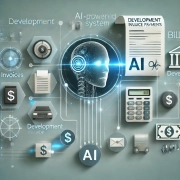What Really Matters: Filtering AI Trends for CRE Success | S6E4
In this episode of the Adventures in CRE Audio Series, Sam, Spencer, and Michael tackle a challenge many CRE professionals face in the AI era: overwhelm. From doomscrolling LinkedIn headlines to the fear of missing out on the “next big thing,” it’s easy to feel lost in a flood of innovation. The trio explores how to cut through the noise and focus on meaningful signals—those changes worth acting on.
They go beyond the tech talk to ask deeper questions about purpose, time, and the real “why” behind adopting AI. Whether you’re a power user chasing an edge or just trying to stay afloat, this episode offers a clear, grounded framework for approaching AI intentionally and staying focused on what matters most.
Watch, listen, or read this episode to get a preview of what’s ahead in Season 6 of the A.CRE Audio Series!
What Really Matters: Filtering AI Trends for CRE Success
Or Listen to this Episode
Resources from this Episode
- A.CRE Real Estate Financial Modeling Career Accelerator
- Education in Real Estate
- A.CRE Audio Series
- Want to future-proof your real estate career and to thrive in the era of AI? Join AI.Edge: https://theCREedge.AI
Episode Transcript
Sam Carlson (00:08):
Here’s what we’re going to do. This one’s going to be a little bit different because I want you guys to put yourself, visualize this scenario, okay? And I know especially you kind of do this not to the extent of the doom scrolling that I’m going to be talking about, but you wake up in the morning,
Michael Belasco (00:23):
Should you close our eyes
Sam Carlson (00:24):
If you want.
Michael Belasco (00:24):
Okay, close my eyes.
Sam Carlson (00:25):
Okay. Michael’s getting into it. I like it. If you’re driving, definitely don’t close your eyes. Just think about this in your mind. Alright? You get your phone, you open up LinkedIn or social media of your choice, whatever it is, you start flipping through and you find yourself hitting on one post, then another, then another, all of which seem to be triggering the fear centers of your brain, right? Because whether it’s the news or viral social media, that is the content that is the most engaging and that is what people, and anything that you engage with is what people share.
Spencer Burton (01:06):
But with the algorithm views is you’re going to find most engaging. Exactly.
Sam Carlson (01:10):
So you’re doom scrolling. That’s what we call this.
Spencer Burton (01:11):
Okay?
Sam Carlson (01:12):
And this happens for day one, then two, then three. Then every morning you wake up and it takes maybe two or three days, and you think that basically the sky is falling. How do I keep up? What is right? What is wrong? What should I do? Who should I pay attention to? All of these scenarios are entering your brain. You have zero peace. That’s the scenario. What do you do?
Spencer Burton (01:43):
Well, so why do you do that? Okay. Now social media’s a bit different. Theres’s a drug involved there somehow that a
Sam Carlson (01:55):
Doom scrolling drug. Yeah. Yeah, exactly.
Spencer Burton (01:57):
I don’t know the science behind why we doom scroll, but I am sure there is some science behind that. But when I think about following the news, and I’m not talking about political news or geopolitical or any of world news or anything. I’m talking about real estate news or AI news. I think we largely follow that for fear of missing out. Maybe not largely follow, but I think one reason we follow is we don’t want to be the person who shows up in the office in the morning and didn’t know about name the headline that everyone else is talking about.
Sam Carlson (02:32):
You don’t want the fomo,
Spencer Burton (02:35):
You don’t want that. And especially as it relates to AI news, I think a lot of people, well, maybe I live in hanging out with the choir here, but when it comes to AI news, it’s like, well, I don’t want to miss the latest thing.
Sam Carlson (02:50):
You remember two weeks ago during, I think Google used to have this week when they would do all their announcements, and then that same week, all these other companies said, well, if Google’s going to be releasing all their stuff, so anthropic release stuff, all of these huge companies,
Spencer Burton (03:07):
They’d still do all that. But yes. And it gets to be like, oh my
Sam Carlson (03:10):
Gosh, there’s so much coming out. What do I pay attention to? And there’s this concept in first principle thinking, it’s noise versus signal. What do you pay attention to? What do you filter away and how do you make those
Spencer Burton (03:25):
Decisions? So how do you know it’s noise versus signal? That’s what I mean. How do you know?
Michael Belasco (03:30):
You tell us. I don’t know. I don’t know. That’s the whole point of the thing. Well, you go, I think you gravitate towards thought leaders and people who can help you navigate that. I mean, that’s how I kind of navigate when there’s so much out there even. But who do you know to
Spencer Burton (03:42):
Trust, especially on a nascent technology like this?
Michael Belasco (03:48):
I mean, it’s a good question. I mean, there is a persona of who I would trust. It would be somebody that has some legacy trust that I have ascribed to. That’s if they’re going into this space, and not to toot internally on our own horn, but when AI started becoming a thing, and this work keeps coming up because relevant, you look to the prolific tinkerers that will then go through and actually have the passion to dive through the noise, to find the signals. In a lot of spaces, I won’t be that prolific tinker to dive through the noise and find the signals, but there are people out there that do that sort of stuff. So that’s sort of where I go to when you get into something new and when you learn something new, you look to the people that have had precedents of success. Maybe it’s not in that exact space, but it’s in other things like how did they get there? They followed some sort of roadmap and you hope that they’re taking that same roadmap as well. So I mean, that would be my initial opener to a response to that question.
Spencer Burton (04:53):
For me, it’s fomo,
Sam Carlson (04:56):
Which makes you the prolific takeaway. Well, that’s true, but hold on. So okay, I’m going to take a different spin because I am around you quite a bit, and I’ve known you for a very long time. You do get up every morning and you a, I mean, you read a ton on all this stuff, but what you’re doing is different. You’re not doing it based out of fear. You’re doing it out of, or are you doing out of fear? You’re giving
Spencer Burton (05:23):
Me a, I say that partly in jest. So part of it is I don’t want to miss a headline because that actually things are moving so fast and I don’t want to miss the next thing that’ll give me the edge so that we can continue to move fast. So some of it, fear is the wrong term because I’m not at all driven by fear, but
Sam Carlson (05:44):
Advantage maybe.
Spencer Burton (05:46):
Yeah, I don’t want to miss out on something. There’s also,
(05:49):
So you made a really good point, which is we can’t all ingest everything. So I’m not sitting there tracking the latest music news. I have no idea what’s happening in music. None. Zero. I have absolutely no clue who anyone is, and that’s not
Michael Belasco (06:09):
Where you’re
Spencer Burton (06:09):
Interest at or what they’re doing. I have no interest in that. But I wake up every morning, I still love real estate news. I love AI news, and there’s a dopamine hit when GPT five comes out. That’s going to be a pretty exciting moment
Michael Belasco (06:27):
For
Spencer Burton (06:27):
Me, right?
Sam Carlson (06:27):
Yeah. They say it’s going to be age agentic. We’ll see, don’t want
Spencer Burton (06:31):
To bear. Right? And so, yeah, I don’t want to miss out on something, but I genuinely enjoy it in the same way that people who enjoy the NFL are tracking every trade and they’re reading the predictions and they’re making their own predictions. Yeah, it’s a passion. And so that’s why they’re consuming so much noise. And they could help us then understand what our signals versus what’s noise.
Sam Carlson (06:58):
It’s funny because I remember I got down here and our team at my software company, we use cursor to write code, and we get down here and you’re like, oh, I’m using root code. I’m like, well, what’s that? Let me show you. I’m thinking, oh my gosh, now we’re missing out on this. I messaged my developer, I’m like, Hey, we should take a look at this. What do you think?
Spencer Burton (07:23):
Which I hear I got that from a trusted person, someone who’s following the news as closely as I am, and this person found this. I was like,
Sam Carlson (07:32):
Okay, that’s great. You’re a person who’s a regular real estate professional. You’re not Spencer Burton who loves and eats and drinks and sleeps this stuff. You maybe need a break from the overwhelm, from the complexity of it all. Because a lot of it too is, I mean, we have new things rolling out. How long, I mean, maybe three months ago they rolled out MCP,
Spencer Burton (07:54):
And you’ve been around longer than that, but OpenAI adopted the MCP protocol. And when that happened, big news, because that has effectively meant, at least for the foreseeable future, that will be the standard link between tools and agent systems.
Sam Carlson (08:13):
So this is the difference between signal and noise. MCP is signal because it’s going to inform how tools are built, how AI evolves, how AI communicates from one thing to the next integrations. So
Spencer Burton (08:28):
The news that you’re referring to from several months ago, it became Signal, but for a period of time, MCP was more noise than signal. And you might watch a YouTube video that said, MCP is going to destroy your job. I mean, that’s noise or this MCP server has been built. That was largely noise, but then certain things happen that are clearly signal now. But what is signal? Signal is information that makes you act,
Sam Carlson (09:05):
Okay.
Spencer Burton (09:06):
That’s what I
Sam Carlson (09:07):
Think of information to act upon
Spencer Burton (09:08):
Or to act upon. So information to act upon that would be a better way of defining it. Noise are complexity, complexity that creates confusion. Should I act or should I not? And distraction,
Sam Carlson (09:21):
If I look at distraction, look like the market on the whole without going deep into these different features and different whatever, I’m thinking, okay, well, a lot of the noise right now is AI’s going to take all the jobs that would
Spencer Burton (09:33):
Be noise.
Sam Carlson (09:34):
And so this is kind of this sentiment that is easy for people to glob onto and then multiply and proliferate. And it’s like, okay, well, that’s noise. What’s signal? Well, signal is more like first principle reasoning and first principle thinking, right? I was listening to that same podcast a couple weeks ago maybe, and the conversation was, well, listen, what is our job? As investment grows, as the economy grows, what is our actual job? And it is to deploy capital, to deploy capital requires people. And yeah, you might have AI that is helping you do things. However, if AI can multiply one person, why don’t you get another person in that AI can be multiplied upon so that your units of
Spencer Burton (10:28):
Production increase. So by the way, I disagree with that. I’d hear that a lot in different companies. I was like, okay, you’ve got to go to the end of all this. What’s the why for why we do this? And I worked at a life insurance company for a number of years, credible company. And our why was we are ensuring the stability of what could be an orphan or a widow. And that’s a nice principle to live on. But that’s not really the why. The why is all of us have a finite amount of time on this place, and we want to live in a way that gives us the most, meaning we might deploy capital, which allows us frees up our time. Money is just simply an exchange between two parties. Deploying capital is just simply hopefully growing that, the ability to exchange. But at the end of the day, it’s all about time. Philosophically, this is what I believe. It’s all about time. And so it’s not about deploying capital actually, it’s actually at its root about time, which is why this technology is so exciting, exciting because it unlocks time in a way, at a scale at which no technology at this point has unlocked time. This,
Michael Belasco (11:51):
I’m giggling about this for a certain lens of people that have that perspective. It unlocks time. But then there’s the other side of this, which I find fascinating too, is that it actually can, because there are people that just love to stay busy or they are micromanagers and they’re very smart and capable people, well, now all of a sudden you have a technology that will allow you to do more of the stuff that you’re hoping to accomplish. So there’s almost a psychology behind this too, where you can use AI to free up the most value time. It also multiplies time, certainly in the workforce. I guess the ultimate point is when you talk about time, Spencer, are you referring to time to esoteric?
Spencer Burton (12:43):
Did it give you the greatest joy?
Michael Belasco (12:44):
Yes. To know
Spencer Burton (12:46):
What to spend your time
Michael Belasco (12:46):
On, people might fall into a trap is what? Oh, now I can be my own lawyer, now I can do this. Now I can do that.
Spencer Burton (12:53):
If that’s
Michael Belasco (12:53):
What brings them joy, look, which I think is just an
Spencer Burton (12:57):
For a decade now or more. We’ve laughed that on Super Bowl weekend, what Spencer’s doing is billing models. And the reason I use that as an example is that is a weekend where I have time. There’s not a lot of distractions and I love college football, but I’m not a huge NFL guy. And so I spend that weekend building models. That’s how I want to spend my time. But if my time is wrapped up in every month, got to do the books, and it’s like that’s
Michael Belasco (13:33):
A mindset also is sort of the point I’m making with that. You could get trapped into it. Oh, I need to do it. You might not necessarily be finding joy out of it. I think it was almost like there’s a psychology component to this when this,
Sam Carlson (13:45):
Well, there’s that one saying that honestly keeps, it terrifies me is most men live quiet lives of desperation. You’ve heard that. And I think it largely comes down to the time that they have in their lives and what it is spent doing. And they’re trapped in doing something they want to be doing. They’re doing something that they don’t want to be doing. So that, I mean this really, if dealt with property that unlocks all of that, it removes you from it.
Spencer Burton (14:16):
So this gets to the why. And so that’s why I push back on this whole idea. And I mean, no disrespect to those very smart individuals, but it’s not all about deploying capital. If we really go to the first principles of all this, it’s our why and everyone has a slightly different why. But if you really think about everyone’s why comes down to time, time to do something that brings them the greatest joy. And if I can leverage a technology that frees up my time and the time of people that I care about, what an amazing, amazing thing to do whatever they may be. And for some people they want to work and for other people they
Michael Belasco (14:58):
Want to. Some people feel compelled to work. No, it’s just I am thinking, does there need to be a training on a perspective? Because it’s a tool. AI is essentially a tool, and you look at it in that light, in that framework, it’s incredible. And some people, you could look at it in a,
Spencer Burton (15:16):
Every technology is a tool.
Michael Belasco (15:17):
Exactly, exactly. But I love your perspective. I think the world needs to hear that
Spencer Burton (15:24):
Perspective. Probably 65% of the people who are listening and watching roll their eyes. And we had a business partner who I love to death who about once a year I’d be like, Hey, we should talk about what our why is. And he’s like, come on, Spencer. I mean, why is we want to make money to take care of our family? And I’m like, I don’t really think that’s the case, but okay, every year you tell me this, and so I believe you. That’s your why, your why. But I think if we all took a Zen retreat, I’m into it. We sat around a circle and we really explored our why. Many of these things that we say are our why are simply means to get to the deeper why.
Michael Belasco (16:06):
Yes.
Spencer Burton (16:07):
Now, I don’t know how this relates to signal and noise.
Sam Carlson (16:10):
Well, signal and noise is, and when you say why you mean purpose? Because really people need purpose.
Spencer Burton (16:18):
Why are we doing any of this? Why are we sitting around this table doing a podcast? There’s a why for it. Okay? Some of it’s strategic. It’s like, okay, we want to be in front of our audience. We want to deliver value to them. If we deliver value to our audience, our audience grows. Our audience grows. This then becomes a worthwhile thing. But that’s not the why. The is because I have a wife at home that I love dearly and I want to spend some time with her. The why is I like hanging out with my buddies. This is super fun. My why is I have kids that I want to be an example for and hope that I do certain things that they might emulate, although they would roll their eyes at that. I like that teenager. That’s the why is you go spend some time on East Mujeres and it’s like, I want to spend more time here and less time doing X, Y, Z. I mean, that’s the why
Sam Carlson (17:13):
To me. Me, I remember a long time ago, and this isn’t like I be afraid of what’s happening at Adventures in Sir, because nothing bad, everything good is happening. But I remember you saying, if this ever becomes not fun, we’ll just be done doing it. Remember? And that was fun. It’s like if it ever became not fun, we would just stop doing it. And it’s always fun.
Spencer Burton (17:37):
It’s a simplistic way to have your
Sam Carlson (17:40):
Why. It’s almost like if this ever lost its purpose, then we would stop doing it,
Spencer Burton (17:46):
Of course
Sam Carlson (17:47):
And purpose. It’s like whenever you have a plan and you’re making progress, you feel just good about it, assuming it’s your plan, you are like, well, if I’m doing this for somebody else, then it doesn’t feel quite as purposeful unless that’s your thing, whatever. But I do think it kind of just comes down to it. If this stops being fun, what’s the point? And when it comes to family and all that kind of stuff, I want more time with my family, but I also want them to achieve things outside of our family unit. And that’s going to be more of my purpose later on in life. And I think their purpose changes. So let’s bring it back to ai. Yeah.
Michael Belasco (18:35):
Well, no, looping it back into that is that this is an opportunity if used correctly to achieve that. And so the point of this is signal over noise. And so noise could be what I described as bogging you down into more, oh, well, now I have access. Before I didn’t have access to this stuff. I couldn’t answer that question. Now I can. I can go deeper. This FOMO or this anxiety driven, which I have personally been driven a lot of my life. It’s been through anxiety, but I have a lot of different perspectives on life. But that could bog you down. That to me is this could be used as a tool to create more of that, or it could use appropriately. It could be used to as an incredibly powerful tool to help you accelerate in your career, to free up your time and focusing not on the noise of this is going to take my job, but the signals of how can I adapt, even if it does take my job, I’m fine because there is a bridge here. The bridge is also, the barrier is also the bridge in this case with ai. So
Spencer Burton (19:39):
Yeah, let me speak to two different people. The first are, so we had, there’s another episode in the season where we talk about the concept of being AI native.
And I would say 10 to 20% of people in our industry will ultimately be AI native. Now, eventually everyone will just, but for the foreseeable future, call it 10 to 20%. Those are going to be early adopters of things. Those are the ones who are going to pick up the signals the moment they happen. And that’s because they’re passionate about it. This is the same reason why certain people digest every single piece of NBA news that they possibly can because they’re passionate about it. And I respect that kind of passion. And those are the people who digest the noise and the signal and have the context and this experience and the mastery to be able to tell you and I and others what signal is. And so if I wanted to know what’s happening in music or in professional sports, I generally turn to you or I have another friend who is like a at those things, and they’re digesting the noise and the signal, and they get that. And when you want something around ai, Michael texts me like, Hey, what do you think about this? Is this something I should pay attention to? And so I think the solution here is not that you’ve got to be forced to digest new noise on things that you’re not interested in, but if it’s important, you do need to know when a signal happens
(21:13):
And you need a source that you can turn to that you trust that provides you that signal says, Hey, this happened. I have certain things that I look to Sam for. He delivers the signal. Certain things I look at you for and others trusted sources in your sphere who can deliver those signals. Anyway, I think that’s what the solution is here to the noise versus signal piece
Michael Belasco (21:33):
And for people that to amplify whatever your subject matter. That’s the thing. There was this conversation and somebody had said where this is like, it’s a utility. AI is a utility. So whether it is, I don’t know that I’m the guy for professional sports or music today, but talking about the Eagles maybe. But there’s stuff there that can amplify your expertise and whatever it
Sam Carlson (21:56):
Is. And I’d say, I mean, not to toot the collective horn here. If you’re in commercial real estate and you want signal adventures in CRE is, I mean, we started producing content how long ago on AI over a year ago? Oh, on ai. We’ve been doing it since 2022. So
Spencer Burton (22:16):
Yeah, I’m talking for years.
Sam Carlson (22:18):
So for a very long time, and we’re users of it in our business. So yeah, I think this would be a great place to come and get signals just to say, Hey, well, I’m wondering what’s going on over to adventures.
Spencer Burton (22:30):
Yeah, we don’t do it well right now though, to be fair, we publish on things we find interesting today, June of 2025. We are not a comprehensive resource, but no one is. That’s something that we’re working to solve. Do
Sam Carlson (22:49):
It, fix it. No, I think it’s important. I think even, I remember I was looking at a social media post and somebody was saying, effectively, they were saying, where can we get signal in commercial real estate?
Spencer Burton (23:05):
No, you don’t find it not commercial real estate related ai. It doesn’t exist. There are people who, if you follow enough people, you can, but then again, you’re digesting a lot of noise, and so that’s something that we will solve.
Sam Carlson (23:20):
Yeah. Interesting. Well, I think for me, a takeaway here is until that problem is solved, it is understanding that artificial intelligence is here to magnify the thing that you’re best at. And ultimately, if you do that, you’ll have a much more fulfilled career and still be able to produce a ton. Not going to, it removes all the redundancy and garbage from your career currently, and maybe elevates you. It can elevate you. I think that’s the,
Michael Belasco (24:02):
Yeah, it gets those redundant things done quicker, a lot quicker. Get out of the way so you can get back to the joy of what you’re focused on.
Sam Carlson (24:09):
Yeah, don’t focus if you’re feeling the overwhelmed, the complexity of it all. Get a perspective and follow us. All right, sounds good. See you in the next episode.
Announcer (24:25):
Thanks for tuning into this episode of the Adventures and CRE audio series. For show notes and additional resources, head over to www.adventuresandcre.com/audioseries.








